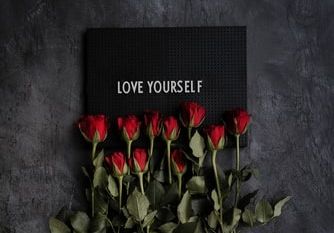We live in a time where many technological advancements have been made - cars are becoming more efficient, phones don't have buttons, we can chat with anyone around the world with just a tap of our fingers, and so much more. But technology hasn't made all of our problems go away, as great as it can be. Beauty standards are still a topic of discussion with the new, technology-driven generations, and these standards are still evolving and highly affected by the technology that is evolving alongside of them.
Now, don't get me wrong, we've come a very long way from the set bar of pressure of the late 20th century.
The spectrum of models has expanded, skin color and even discoloration have been embraced, and the continuous trendsetting styles have been greatly encouraged.Yet despite all of these changes, there are times where I say to myself, "Really? We're back to throwing our words at people to break them down over something that can't be helped? Or over something that is so unharmful?" I mean, this generation grew up during a time when social media was used to spread awareness of various issues using drawings and cartoons of relatable topics, the biggest issue being bullying. And yet, people have still grown up to be incredibly oppressive and close-minded. People are still comparing their Instagram post likes to those that have more likes, their own selfie game to that of another, their own reflections with the figures and complexions they see on social media. Just the other day, I was hanging out with some friends (keeping our distance, of course), and the discussion turned towards how people are still against the thought of plus-sized models. It brought me to wonder if there is any salvaging that can be done to make these beauty standards set by society go away.
Movies and TV shows have been known to "Hollywood-ize" certain beauty standards, like symmetrical faces, body figures, hair styles, and more.
There's no new news there. But really, this branch of the entertainment industry has continued to pave roads that set an example for kids, teens, and even young and older adults. One case was in the movie "Isn't It Romantic?" starring Rebel Wilson, who plays the lead character Natalie. In the opening scene of "Isn't It Romantic?," young Natalie was watching "Pretty Woman" when her mother came into the room and made a remark about how stunning Julia Roberts was:
"Wake up, Natalie," the mom says. "It's just a movie… In real life, girls like us don't get that."
Natalie questions her mother's remark, and what was her mother's answer?
"We're no Julia Roberts."
Although the movie has set a tone of hopelessness for romance and tries to meld that association for Natalie through cheesy parallels of "Pretty Woman," Natalie goes on to discover that there is another type of love - self-love.
Similar to "Isn't It Romantic?," music has contributed to society's 180-degree turn on beauty and self-love.
One of the most memorable releases of 2013 was the song "All of Me" by John Legend, who dedicated the song to his wife - Chrissy Teigen. This song has, without a doubt, proven to tug at the heartstrings as the message of unconditional love is delivered. Fast forward a few years, and now we have so many songs that carry the same message of empowerment from singers like Lizzo, Ariana Grande, and Meghan Trainor. The message of self-love can even break through the language barrier, like in the case of Latin pop singer Bebe and South Korean groups BTS and TWICE. As we keep evolving through the years, this message becomes more and more apparent.
So, is there any salvaging that can be done to make these beauty standards set by society go away?
Scavenging for answers to that question led me to find that, although this particular topic of beauty standards doesn't seem like it's going away any time soon, it is evolving. And even though this topic of discussion will never truly or completely cease to exist, maybe as new generations take over, these standards will become less and less powerful and there will be even more acceptance of who we are and what we mean to ourselves.
- Why We Need to Ditch the Unrealistic Beauty Standards for Men, Too ›
- What Women Want Men To Know About Male Beauty Standards ›
- How Social Media Contributes To Unrealistic Beauty Standards ›
- The Evolution Of Beauty Standards And Fashion Over The Years ›
- Society's Standards Of Beauty Are Unrealistic For Women ›
- My 4C Hair is Ugly According to Today's Beauty Standards ›
- Society's Beauty Standards ›


















